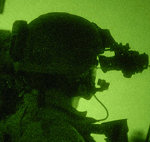
ABOVE: Valid
Alaghband
Valid Alaghband, Chairman of the Balli Group, which just agreed to a $17 million fine to settle charges that it exported U.S.-origin commercial passenger aircraft to Iran, took to the pages of the daily student newspaper of his alma mater Cornell University to present his side of the story. Frankly, his story isn’t very convincing, and I doubt that regular readers of this blog or others familiar with U.S. export laws will be swayed by Alaghband’s story. Some may, in fact, chuckle that Alaghband would publicly mount the defense that he does.
The confusion arises from the use of the term “export†which, to a layman, signifies a sale and purchase (or physical trade) of goods across international borders. That is not how the U.S. regulations necessarily define exports and our settlement with the U.S. authorities does not remotely suggest that Balli Aviation sold its aircraft to Iran. Balli Aviation legally and beneficially owned its fleet of aircraft at all material times.
Epic fail, as the kids on the blogs say nowadays. Anybody with even a smidgen of familiarity with U.S. export laws is aware that you can export stuff to Iran which hasn’t been sold to Iran. To begin with, the aircraft in question were flown in an out of Iran carrying commercial passengers. Balli was charged with re-exporting the aircraft to Iran and the Export Administration Regulations, in section 734.2(b), provide a pretty unambiguous definition of re-export:
“Reexport†means an actual shipment or transmission of items subject to the EAR from one foreign country to another foreign country
Hmm. I don’t see anything in that restricting an export to a cross-border purchase and sale, do you? I didn’t think so.
What happened here was that Balli leased the aircraft to an Armenian airline, Blue Sky, that then operated the aircraft in and out of Iran under a code-sharing arrangement with Mahan Airways. Or as Mr. Alaghband admits:
Balli Aviation … [leased] three of the aircraft to an Armenian operator which serviced the civilian passenger traffic under arrangements with a local operator.
The “local operator, which Alaghband can’t bring himself to name, was the Iranian carrier Mahan.
Alaghband also claims that Norton Rose, a prominent U.K. law firm, told him that this scheme would comply with U.S. export laws. If Norton Rose did indeed provide such profoundly awful advice, and I have no evidence of this other than Alaghband’s claim that they did, this would underline what I might have thought obvious: a firm of British solicitors with not even a single office in the United States might not be the best choice for obtaining advice on complying with U.S. export laws.

 Posted by
Posted by  Category:
Category: 

 On Monday the Directorate of Defense Trade Controls (“DDTC) published a
On Monday the Directorate of Defense Trade Controls (“DDTC) published a  DHS’s Bureau of Citizenship and Immigration Services (“BCIS”) wants to make your life more difficult if you hire H-1B workers and need a deemed export license to do so. Under a proposed revision in the form used to apply for H-1B visas for skilled technical workers, employers will now need to obtain the deemed export license from the Bureau of Industry and Security (“BIS”) before applying for the H-1B visa. Previously, the license needed to be obtained before the foreign worker could be given information on the controlled technology, but the employer could file for the visa and the deemed export license simultaneously. Now, the export license must be obtained before the visa can even be submitted to BCIS. Here is a copy of
DHS’s Bureau of Citizenship and Immigration Services (“BCIS”) wants to make your life more difficult if you hire H-1B workers and need a deemed export license to do so. Under a proposed revision in the form used to apply for H-1B visas for skilled technical workers, employers will now need to obtain the deemed export license from the Bureau of Industry and Security (“BIS”) before applying for the H-1B visa. Previously, the license needed to be obtained before the foreign worker could be given information on the controlled technology, but the employer could file for the visa and the deemed export license simultaneously. Now, the export license must be obtained before the visa can even be submitted to BCIS. Here is a copy of  Andrew Tabler, who works for a Washington-based think tank on the Middle East wrote a
Andrew Tabler, who works for a Washington-based think tank on the Middle East wrote a  For several years now the Bureau of Industry and Security (“BIS”) has had the statutory authority to impose a civil penalty of $250,000 per export violation but has yet impose anything near that fine. So when BIS finally whacks someone with a $2.5 million fine for 10 violations, you might assume that the person paying such a fine did something really terrible like exporting dual-use items to Iran that Iran could use in uranium enrichment facilities. But you would be wrong.
For several years now the Bureau of Industry and Security (“BIS”) has had the statutory authority to impose a civil penalty of $250,000 per export violation but has yet impose anything near that fine. So when BIS finally whacks someone with a $2.5 million fine for 10 violations, you might assume that the person paying such a fine did something really terrible like exporting dual-use items to Iran that Iran could use in uranium enrichment facilities. But you would be wrong.

